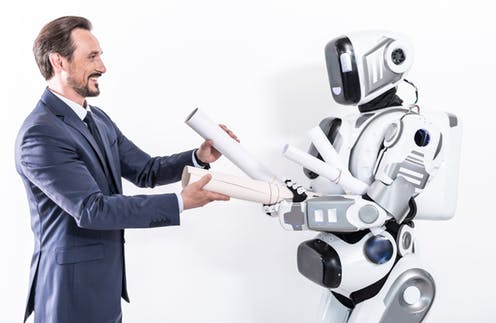BERLIN: Cooperation between humans and machines can work much better than just human or robot teams alone, according to a study.
Researchers from the University of Gottingen in Germany and colleagues simulated a process from production logistics, such as the typical supply of materials for use in the car or engineering industries.
A team of human drivers, a team of robots and a mixed team of humans and robots were assigned transport tasks using vehicles.
The time they needed was measured by researchers.
The results, published in the International Journal of Advanced Manufacturing Technologies, were that the mixed team of humans and robots were able to beat the other teams.
This coordination of processes was most efficient and caused the fewest accidents.
This was quite unexpected, as the highest levels of efficiency are often assumed to belong to those systems that are completely automated.
“This brings a crucial ray of hope when considering efficiency in all discussions involving automation and digitisation,” said Professor Matthias Klumpp from the University of Gottingen.
“There will also be many scenarios and uses in the future where mixed teams of robots and humans are superior to entirely robotic machine systems. At the least, excessive fears of dramatic job losses are not justified from our point of view,” Klumpp said.
The researchers from the various disciplines of business administration, computer science and sociology of work and industry highlighted the requirements for successful human-machine interaction.
In many corporate and business situations, decisions will continue to be driven by people.
The researchers said that companies should pay more attention to their employees in the technical implementation of automation. (AGENCIES)


